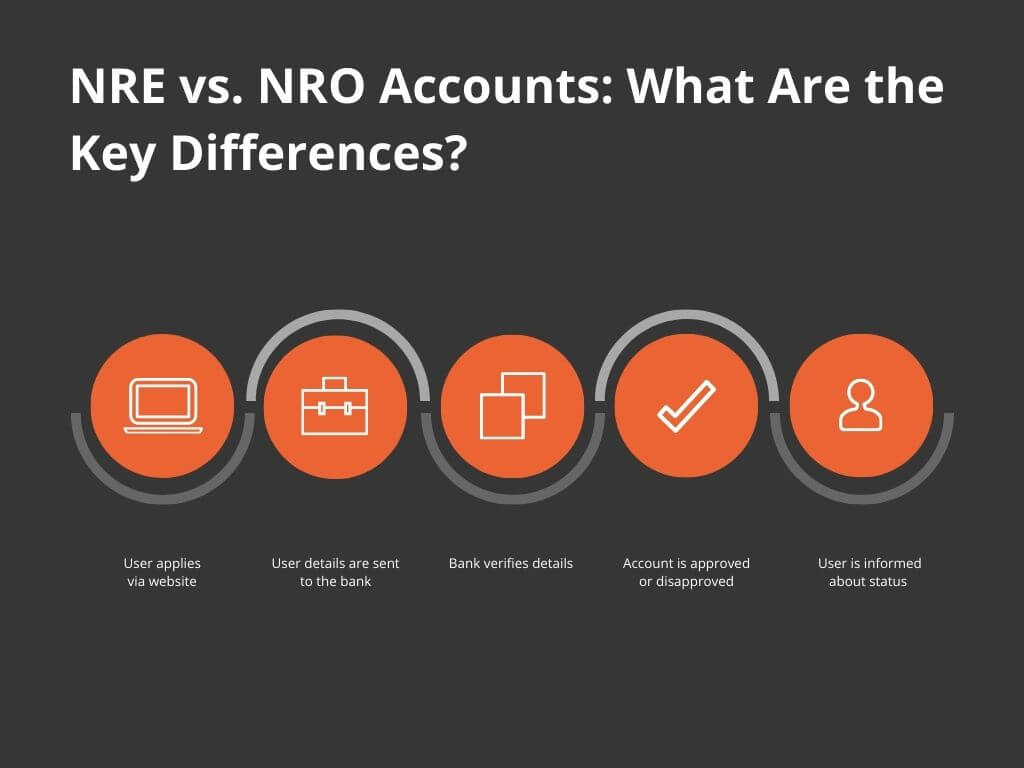Are you a Non-Resident Indian (NRI)? Has your employment or education taken you out of India? If you answered yes, then you may run into some difficulty opening an Indian bank account. Luckily, there are two options that can be of service. There is the NRE account and the NRO account, the Non-Resident External Rupee Account and Non-Resident Ordinary Rupee Account. There is a difference between NRE and NRO accounts, so let’s look at your options.

Interest and Taxes
If you already have an online demat account to store and keep track of your investments, you may also want to invest in an NRE or NRO account to improve your financial situation. It is important to note that the rate of interest of an NRO is comparatively higher than that of an NRE and that the interest of an NRO is taxable. Both the principal and interest are repatriable in an NRE. But an NRO only offers freely repatriable interest and there are restrictions on transferring the principal balance to another country. Of course, there are exceptions like pensions and rent.
Definition
By definition, both accounts are for NRIs. Although an NRO can be opened by a citizen of India, who is transitioning into living abroad, it can also be used for monies earned in India, like a pension, rent or interest. NRIs use NROs to transfer money from their country of residence or another NRO account. An NRE is a way to store money generated outside of India in India. Deposits are made through notes or traveler’s cheques.
Currency
When you have an NRO account, the depositor takes on the exchange rate risk, and deposits can be made in either foreign currency or INR. All money in an NRE is denominated in INR, therefore, all deposits must be in a foreign currency and all withdrawals must be in INR. Withdrawals from both account types will always be in Indian rupee only.
Location and Account Holders
One key difference is who can open these types of accounts. You must be an NRI to open either type of account. But the difference comes in having a joint account. Both NRE account holders must be NRIs. With an NRO only one account holder must be an NRI. The other account can be an Indian resident. Normal bank accounts can be converted to NRO accounts.
Penalties
It is possible to incur penalties if you fail to convert your normal account to an NRO according to the FEMA Act, 1999. When you become an NRI you must alert your bank. The penalty can be up to three times the amount involved in the breach or up to Rs 2 Lakhs. Penalties will continue to grow the longer you go without converting your account.
Although both accounts are strikingly similar, there are key differences that are worth noting, The purpose of them is to give Indian citizens living abroad the chance to hold their hard-earned money in India. Consider your needs before choosing an account, because ultimately, you want to be able to conduct your business in a way that is convenient for you.

